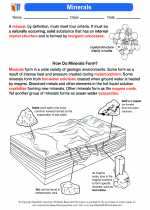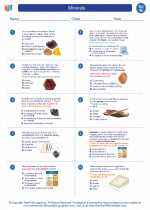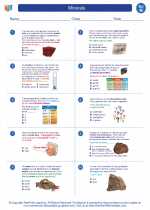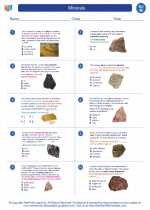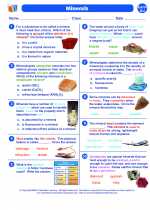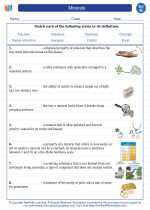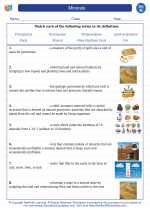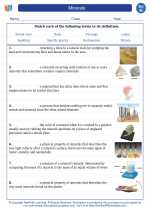Native Elements
Native elements are minerals that are composed of a single element and occur in nature in an uncombined form. They are quite rare and are often found in pure form, making them valuable and important in various industries.
Examples of Native Elements:
- Gold (Au): Gold is a well-known native element and is prized for its beauty and value. It is often found in pure form as nuggets or grains in rocks and river beds.
- Silver (Ag): Like gold, silver is a native element and is used in jewelry, electronics, and photography due to its conductivity and malleability.
- Diamond (C): Diamond is another native element and is composed of carbon atoms arranged in a crystal lattice. It is the hardest known natural material and is used in jewelry and cutting tools.
- Sulfur (S): Sulfur is a native element that is commonly found in volcanic regions and near hot springs. It is used in the production of sulfuric acid and in the manufacturing of rubber.
- Copper (Cu): Copper is a native element that has been used by humans for thousands of years. It is valued for its conductivity and is used in electrical wiring, plumbing, and coinage.
Properties of Native Elements:
Native elements often have distinct properties that make them valuable and useful:
- Physical Properties: Native elements can have unique physical properties such as luster, color, hardness, and density that make them desirable for various applications.
- Chemical Properties: Each native element has specific chemical properties that determine its reactivity, stability, and potential uses in industry and technology.
- Occurrence: Native elements are often found in specific geological environments, such as near volcanic activity, in sedimentary rocks, or in metamorphic regions.
- Uses: Many native elements have important industrial, commercial, and cultural uses, making them economically significant resources.
Study Guide for Native Elements:
To study native elements effectively, consider the following key points:
- Learn to identify native elements based on their physical and chemical properties, as well as their occurrence in nature.
- Understand the uses and importance of native elements in industry, technology, and culture.
- Explore the geological processes that lead to the formation and concentration of native elements in specific locations.
- Compare and contrast the properties of different native elements, considering their similarities and differences.
- Research the historical and cultural significance of native elements, including their use in art, jewelry, and traditional practices.
By mastering the properties, occurrences, and uses of native elements, you can gain a deeper understanding of these valuable minerals and their impact on our world.


